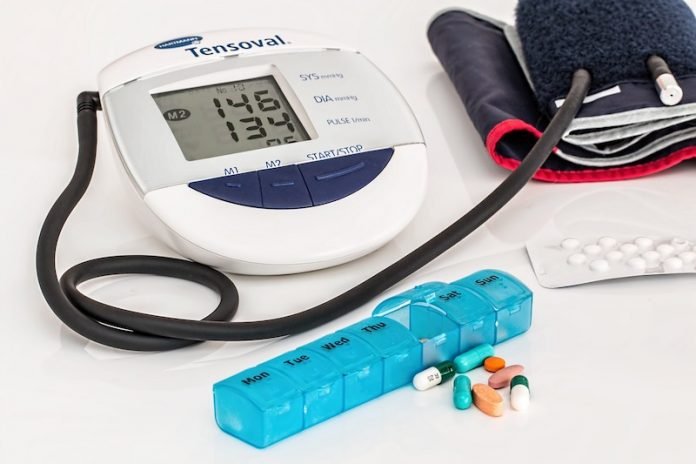
In a new study, researchers found that both numbers in a blood pressure reading—the “upper” systolic and the “lower” diastolic—can predict the risk of heart attack or stroke.
The finding runs counter to previous results that high systolic blood pressure is more likely than diastolic pressure to result in bad health outcomes.
The research was conducted by a team from Kaiser Permanente.
Systolic pressure is the upper number in a blood pressure reading. It measures how hard the heart pumps blood into arteries.
Diastolic pressure is the bottom number. It indicates the pressure on the arteries when the heart rests between beats.
Decades of research have shown that high systolic blood pressure is more likely to result in bad health outcomes, such as heart disease and stroke.
As a result, doctors focus on the upper number, with some experts arguing that the diastolic number might reasonably be ignored.
To test this, the team in the current study examined more than 36 million blood pressure readings taken during outpatient visits between 2007 and 2016, from 1.3 million adult Kaiser Permanente members in Northern California.
They found that systolic pressure has a greater impact.
But both systolic and diastolic pressures could strongly affect the risk of heart attack or stroke, regardless of the definition used for high blood pressure (140/90 mm Hg versus 130/80 mm Hg).
The finding that systolic and diastolic high blood pressures have similar impacts on risk at the lower threshold of 130/80 provides independent support for recent changes in guidelines.
It suggests tighter blood pressure control in higher-risk patients with high blood pressure is necessary for reducing heart disease risk.
The study brings a large amount of data to bear on a basic question, and it gives a very clear answer.
The team says the systolic and diastolic pressures are both important and that in people who are generally healthy, lower blood pressure numbers are better
The lead author of the study is Alexander C. Flint, MD, Kaiser Permanente stroke specialist.
The study is published in the New England Journal of Medicine.
Copyright © 2019 Knowridge Science Report. All rights reserved.



